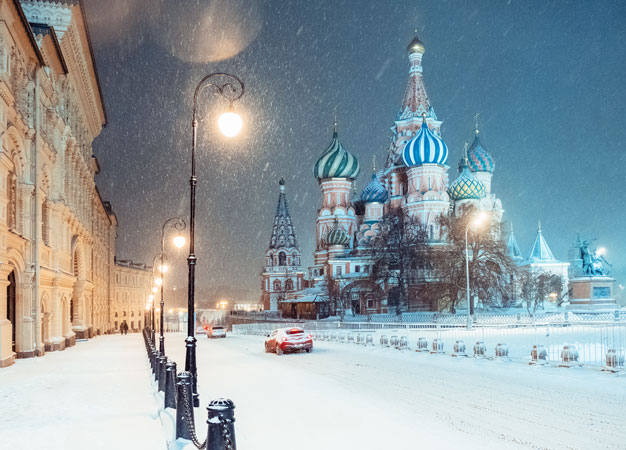Keio analyst Atsushi Ogushi argues that rising populism contributed to Putin's definitive result in the 2016 Russian Duma election
Published online 28 February 2018

Atsushi Ogushi has been interested in Russian politics at the Kremlin since before the demise of the USSR in 1991.
© Elena Liseykina/Getty images
The strong showing of Vladimir Putin's United Russia party in the 2016 Duma election can be ascribed to the recent rise in the politics of populism in Russia, according to Atsushi Ogushi, an associate professor in the Department of Political Science at Keio University and an analyst of Russian politics1.
Ogushi argues that populism, however broadly it is defined, is the opposite of machine politics, where the party and its foot soldiers are all-important. He says that the rise of one signals the fall of the other, in direct proportion.
It was through this lens that Ogushi analyzed the 2016 Duma election, which saw United Russia win 76 per cent of the seats.
Putin's fluctuating popularity had received a boost due to his handling of the crisis in neighboring Ukraine. However, Ogushi argues that the shift from machine politics had been a prominent feature of Russian politics in the past and that the 2016 was simply the next wave in populism. He notes that changes to the electoral system should have seen a marshalling of the forces of the party machine, but there was little evidence that this took place. This implies that the changes, along with the relative popularity of United Russia, helped the party win many seats.
Two-pronged approach
Ogushi believes the Kremlin employed two strategies to bolster Putin's personal appeal. The first was to distance Putin from the United Russia party so that he could appear as standing above party politics. In his analysis, Ogushi comments, "it is much safer for Putin to stand apart from all parties, and this may be his populist method for gaining support from people in general."
The second strategy was to cultivate a 'clean' image for Putin, with him attacking officials who were popularly perceived as being corrupt. A new director was appointed to oversee the running of the 2016 election, and surveillance cameras were deployed to encourage transparency at polling stations. Although voter turn-out remained low, Ogushi says "it is widely acknowledged that the 2016 Duma election was more open than the previous one."
Looking ahead
Ogushi notes that if Putin can sustain this level of popularity in the long run, it could signal a fundamental shift in Russian politics away from machine politics and toward a populist regime.
"There is little doubt that Putin will win the next presidential election, but that must be his last term," he says. "So successor struggles may take place within a few years, but the great power concentrated in Putin's leadership will complicate the succession. It will be very interesting to see how a personalized political system can overcome the succession problem."
Ogushi's analysis is born of on-the-ground experience with the Russian nation.
"I think it is very important for political scientists to conduct fieldwork," he says. "Sometimes they instead concentrate on creating theoretical models. That might be okay in a purely academic world, but political studies can have political and policy implications. I think the 'theory first' mentality that forms policies without a knowledge of the region can be dangerous."
About the researcher

Atsushi Ogushi― Associate Professor
Department of Political Science, Faculty of Law
Atsushi Ogushi obtained his PhD from University of Glasgow (PhD in Politics). He is also a research associate of the Slavic-Eurasian Research Center of Hokkaido University. His research interests cover the Soviet collapse, party politics in Russia and Ukraine, and Russian and Ukrainian political elites.
Links
Reference
- Ogushi, A. Weakened machine politics and the consolidation of a populist regime? Contextualization of the 2016 Duma election. Russian Politics 2, 287-306 (2017). | article